It’s hard to escape your personal biases.
That’s one of the main points behind celebrated Magic: The Gathering pro Paulo Vitor Damo da Rosa’s excellent “8 Biases That Are Making You Worse at Magic” that was published earlier this year on channelfireball.com.
The piece struck a chord with the M:TG community with both pros and amateurs taking an honest look at certain areas their games with plenty of open discussion about cognitive bias.
Basically the idea is that these cognitive biases lead to bad judgment and irrational decisions.
M: TG and poker are not exactly the same but they do share some similarities. They’re both card games and they both involve both strategy and luck.
We’re going to do our best to adapt all eight of da Rosa’s concepts to poker. Who knows, you might just learn something.
8 Biases Wrecking Your Poker Game
1. Peak-End Rule
That people seem to perceive not the sum of an experience but the average of how it was at its peak (e.g., pleasant or unpleasant) and how it ended.
This one has some very direct correlations to poker. Namely that you can get incredibly lucky in the latter portions of a cash game and walk away feeling that you played well.
If you’ve been steadily losing over the course of a cash game and then have the fortune of out-racing your opponent’s QQ with A-J that’s not an indication of solid play.
Another way to interpret this rule is during a tournament you make a hero call that gets you a solid pot but you end up bleeding all your chips away by failing to defend your blinds or some other fundamental mistake.
Making big plays in poker is really fun, and it feels great, but you can’t judge your entire session based on one hand. Be honest when you evaluate your session, even when you are winning, and you should be able to shore up your deficiencies faster.
Related Reading:
2. Gambler’s Fallacy
The tendency to think that future probabilities are altered by past events, when in reality they are unchanged.
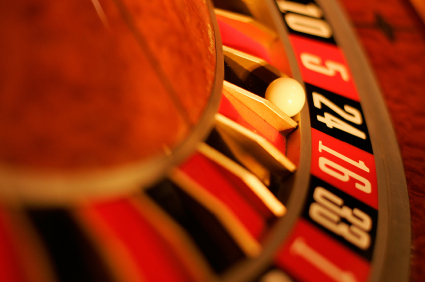
This might be the most relevant point for poker players who can definitely relate to the gambling aspect.
Most poker players are already probably familiar with the concept of Gambler’s Fallacy but the basic idea is that just because you’ve had a bad experience with a certain play in the past doesn’t necessary mean you should stop employing it.
For instance pocket tens is a good hand but it can be beaten. If you get pocket tens cracked by J-T twice in a row that doesn’t mean you should stop playing it.
You need to critically evaluate every play that you make regardless of outcome. If the play is correct then you should keep making it.
3. Illusion of Control
The tendency to overestimate one's degree of influence over other external events.
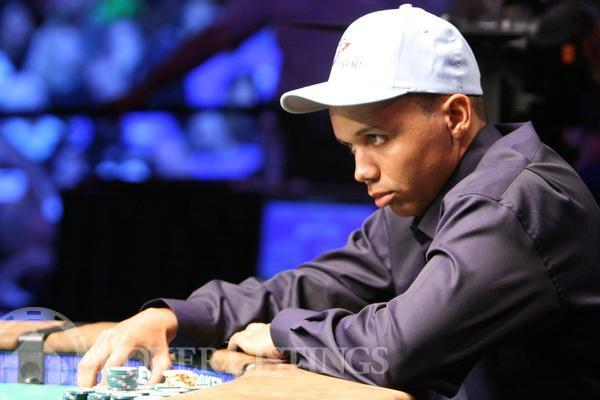
This one is huge in poker. We tend to believe we are in control when we're playing poker but the game clearly contains a significant element of luck.
There are many times that you will lose at the tables and it’s absolutely not your fault. Sometimes we even justify our losses by pointing to some abstract play so that we can sleep at night.
The fact is sometimes you just get unlucky. You have to move on from those games and avoid dwelling on them. Serious problems can arise when we start correcting problems that don’t exist.
Even the best poker players in the world spend a lot of time losing. That includes the Phil Iveys and Daniel Negreanus of the world.
The flip side is that even when we win sometimes it’s not because we were “in control”. Sometimes you just get lucky. If you want to be successful at poker you’ll have to accept that some things are out of your control.
Related Reading:
4. Outcome Bias
The tendency to judge a decision by its eventual outcome instead of based on the quality of the decision at the time it was made.
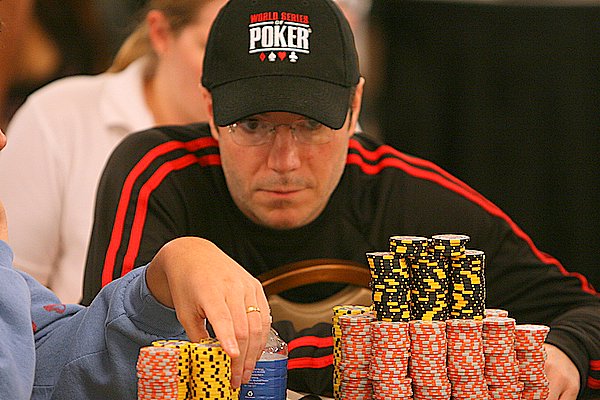
This is another big one in poker and similar in some ways to Illusion of Control. In 2006 Jamie Gold won the Main Event for $12m utilizing an unusual strategy where he frequently told his opponents what he had (although he lied sometimes).
Most pros didn’t find it to be the most compelling strategy. Since then Gold has had very little success in the poker world despite playing numerous tournaments for free. He would even admit he’s not the best poker player in the world despite his record-setting victory.
You also didn’t see a large group of professional poker players switching their style completely to emulate Gold’s extraordinary achievement. That’s why it’s important to avoid being results oriented in poker. You should first focus on the process and results will eventually follow.
There are plenty of bad poker players who have won big tournaments over the years. You personally might win a poker tournament by going all-in every hand. That doesn’t make it the best strategy.
Related Reading:
5. Insensitivity to Sample Size
The tendency to under-expect variation in small samples.
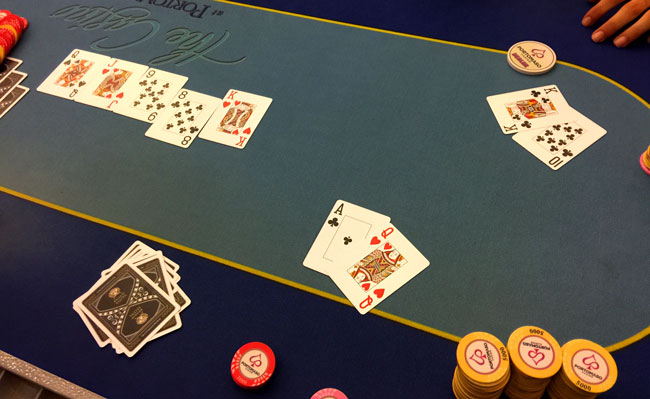
There’s a great deal of variance in poker but eventually the good players will rise to the top. What some people misunderstand is just how long that takes and what consists of a good sample size.
There are a large number of poker players who only play a couple hundred hands each month. That’s not really a big enough sample size to accurately judge your level of play, whether it’s good or bad.
Consider this: when backers are taking on new players they usually request hand histories in the range of 20,000-50,000 hands just to get an estimate. 100,000 hands is even better.
For us mere mortals, 10,000 hands is a good place to start. Whatever you do: don’t quit your day job based on a winning record over a couple thousand hands. Anyone can run hot.
Related Reading:
6. Selective Perception
The tendency for expectations to affect perception.
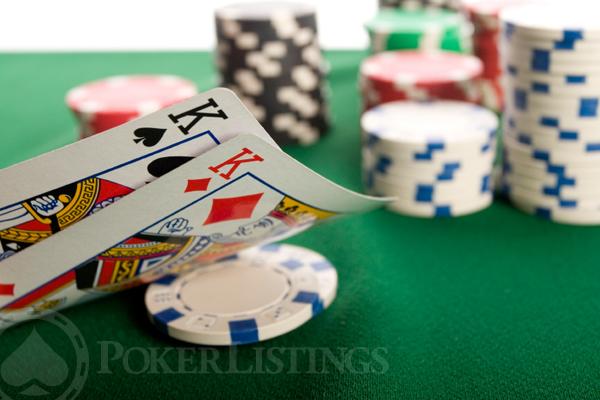
This translates into poker in a more subtle way than some of the previous concepts. Basically the idea behind selective perception is that you get too attached to hands or plays that have worked out for you in the past.
For instance pocket kings is an extremely strong starting hand but that doesn’t necessarily mean you should fire bets on all streets if an ace hits the flop. That’s an obvious example but you also might get attached to a certain hand (say pocket nines) because you won a big pot with it.
Once you have that particularly big win with pocket nines you may start ignoring the signs that you are seriously over overplaying nines because of that one score.
You simply cannot ignore evidence that a certain hand or strategy is not working for you despite limited experiences in the past that paid dividends.
Related Reading:
7. Availability Cascade
A self-reinforcing process in which a collective belief gains more and more plausibility through its increasing repetition in public discourse (or "repeat something long enough and it will become true”).

This is another one that’s more challenging to relate to poker but there are definitely examples of it. The idea behind an availability cascade is that once a strategy starts building momentum it continues to gain acceptance, even if it’s not the greatest strategy.
Basically it’s a group or mob mentality. Strategy A is correct because everyone says so. It triggers a chain reaction.
Another way to look at this is that there are players like Vanessa Selbst, Tom Dwan and Viktor Blom who make unusual plays that conflict with traditional strategy. The problem is that if you play poker 100% by the books then your game becomes stagnant and predictable.
The answer is to once again evaluate information critically and avoid taking all strategy advice at face value.
Related Reading:
8. Pro-Innovation Bias
The tendency to have an excessive optimism toward an invention or innovation's usefulness throughout society, while often failing to identify its limitations and weaknesses.

This might be the only concept in da Rosa’s article that doesn’t really have a direct correlation to poker.
Magic: The Gathering is a constantly evolving game in which new cards are constantly being introduced. Sometimes new sets get undeserved amounts of praise simply because they are “the new shiny.”
Poker is a much more static game so there isn’t as much pro-innovation bias. Many strategies have been the same for the last 10 years.
Perhaps the only way you could relate this to poker was during the mid-2000s when the rise of online poker led to poker players favoring all-out aggression in order to play like Dario Minieri or Tom Dwan.
That style of poker was given a considerable amount of consideration simply because people were seeing Dwan completely own old-school players on High-Stakes Poker with marginal hands.
No one had really seen that before and everyone wanted to “durrrr” their opponents. The poker meta has slowed down considerably since then since most people realize they are, in fact, not Tom Dwan.
Related Reading:
Do you see any better analogies to pro-innovation bias in poker? Let us know in the comments.
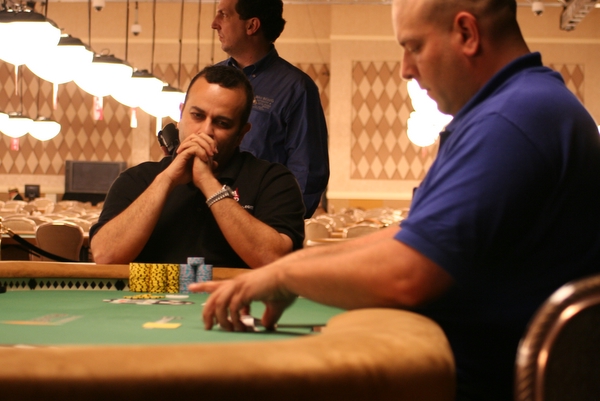

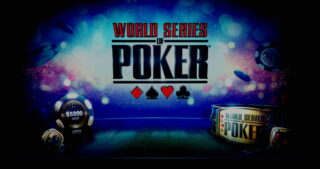



Poker has an implicit pro-innovation advantage (not even a bias), since it is often an advantage to be playing differently to the herd. As soon as there is a consensus on what a solid player looks like, that consensus will be predictable and therefore beatable. When there was a consensus that solid play was tight aggressive, loose aggressive players could exploit it. Similarly, when the herd subsequently became excessively loose, TAGs would profit. Somebody will find a play that effectively exploits the average behavior of the herd, which will then become well known and fashionable and everybody starts running it. At that point, both its profitability will decline and people will start coming up with counterplays that in turn exploit it.
Poker is, in the end, a zero-sum (less than zero with the rake) and impartial game. If everybody were playing optimally, then nobody would win any money. The only way to win is if your opponent is playing sub-optimally and spotting exactly how their play is sub-optimal and developing strategies to exploit that is key to taking their chips. The ways that players on-average play a less-than-optimal game shift over time, so there will always be new strategies that effectively exploit the current state of the poker world. These strategies will themselves affect how that state develops in future.